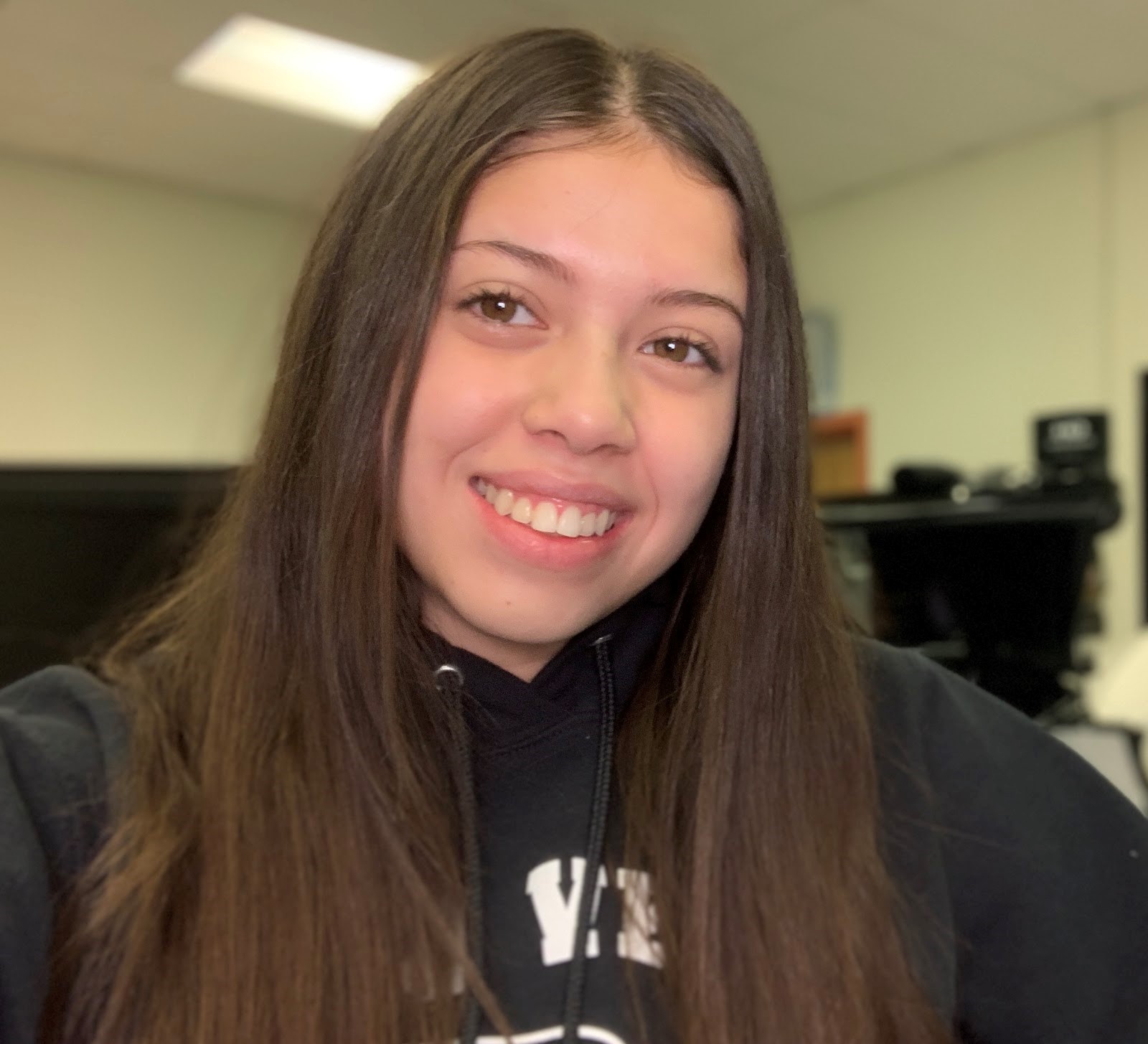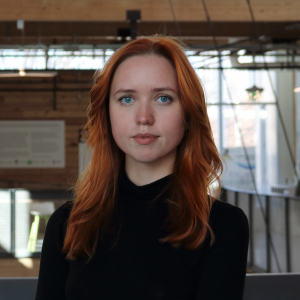First thing, how did you learn about cell ag in the first place?
I have been in a tech program since I was seventeen called The Knowledge Society (TKS). It’s a STEM-based human accelerator program that focuses on teaching kids all about exponential technologies, sciences, and how to leverage mental models, frameworks, and mindsets. I got really interested in cellular agriculture since my friend Isabella Grandic was doing all these talks at conferences about cell ag, and it got me really interested in exactly what was happening.
What cell ag work have you done with TKS?
When I was seventeen, I started writing articles and reading New Harvest research papers. From there, I actually got a speaking opportunity at South by Southwest (SXSW) – which unfortunately got cancelled because of COVID. I got on a panel about future foods for that conference, and once COVID shut everything down, I couldn’t do anything else besides email people at New Harvest to try to talk. I was talking to Natalie Rubio, and she mentioned to me that she was an intern. I hadn’t seen that they had an internship program, so I sent Meera an email asking “Do you have interns? Can I be one?” and she said “Sure!”
What were you going to speak about at South by Southwest?
We were basically talking about the future of food. We were talking about alternative proteins, how technology influences food, and how it could look in the future. It was from the perspective of younger people – who are going to be eating in a futuristic way – what the future of food is going to be like, so that’s why they were aiming for kids who were younger. I was seventeen, another girl was sixteen, and the oldest was nineteen; it was like Gen Z’s take on alternative proteins.
How did you end up getting in contact with Natalie?
One of the things we learn in my tech program is how to network. Every week, we had to get an interview with a legit professional in whatever we were researching; Natalie was the first cell ag person that actually responded. I just sent her a LinkedIn message saying basically “I’m really young and I’m really interested in your research, would you talk with me for 20 minutes?” and she was so down. She was just the nicest person on the planet – she sent me all her research papers and citations and everything. I think because she was so nice and open and willing to talk to me, that was the reason I got hooked on cell ag.
Did you hear anything about New Harvest besides from Natalie?
Whenever I looked up research papers, theirs were the only ones I could actually access. I started realizing the people whose work I was reading were all New Harvest people, so I started looking into them and followed them on LinkedIn. Because we were so network focused, I just started trying to connect with people. I think I even followed Meera or looked at her Twitter! I saw New Harvest as a huge company, and I didn’t realize how small it was until I started interning. That’s how I got interested in New Harvest, because everything they had was public.
When you reached out to New Harvest, what were you most looking forward to doing and now that you are working for New Harvest what are you looking forward to working on in your time here?
It kind of made sense because I was already spending half of my free time researching cellular agriculture! I was reading research papers, annotating research papers, writing articles, and I just thought “I wonder if I could just intern because then I would be able to build some cool connections while still learning about all the cool things happening in cell ag.” When I reached out to Meera, I was just looking for a way to broaden my knowledge and network in the cellular agriculture field because I had been spending so much time researching it and reading all about it
You’ve been in your program a little while, how long are you going to be in it or is it a lifelong thing?
It’s kind of up in the air, it used to be a three year program where in the second year – it’s called Activate – we learn how to break down problems into their core components and figure out how to make global issues digestible and how to figure out what to prioritize and attack. They figured out that they could just iterate on the second year and instead of focusing on one problem, focus on a bunch of different problems. So technically I can be in it for as long as I want. Even if I didn’t go back one year, I’d still be in contact with everybody and be able to attend a lot of the virtual events, so yeah I guess it’s kind of lifelong!
How long do you think you’ll stay with TKS?
I think I’m definitely going to be staying for at least two more years. I convinced my parents that I’ll just do this instead of college because it was a lot cheaper, a lot more fun and had hands on practical learning combined with personal development. We work with a bunch of companies, so by the time I turn nineteen I’ll have already worked on consulting projects for like three companies, created decks, pitched at one of the largest conferences in the world, and work on breaking down some of the world’s biggest problems. I’m just surrounded by people interested in exponential technology and science, and it’s a lot cheaper than college.
Would you ever want to do something more specialized like a Fellowship?
I was planning on doing TKS for at least the four years I would be in college, and after that figure out if I want to go somewhere else. I always figured if I was going to go to college it would have to be pretty specific; I’d want to be there for a doctorate or PhD, something more long-term, and so I don’t really want to rush that decision. It’s been good being able to branch out and get so many amazing opportunities while exploring instead of just backpacking or whatever else I was planning on doing when I was in high school!
You’ve done a lot of networking and you have a lot of really good connections especially now that you’re at New Harvest. Where do you see yourself in cell ag in the future?
One of the things we are encouraged to do in my tech program is start our own businesses and figure out ways to intersect all our technological knowledge in different fields. For example, I used to look into a lot of artificial intelligence like machine learning, and different things in genomics and biomimicry. I figured out if I got a really good understanding of cell ag and another discipline in science or in technology that I could merge the two and start my own business. I’m thinking one day I’d be able to be a founder or cofounder because so many kids in our program love cell ag! A lot of the kids are interested in it, like “Oh I can eat it? Let me see what’s going on over here!” but for now I’m just interning and trying to learn as much as I can.



